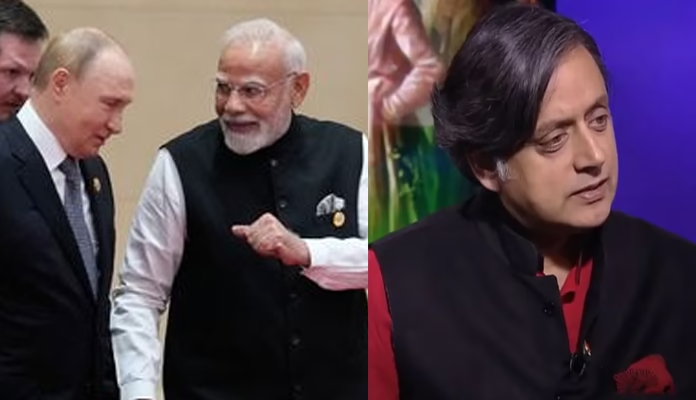
News Desk: Tensions between India and Pakistan have flared again after Pakistan Army Chief General Asim Munir termed terrorism in Jammu and Kashmir a “legitimate conflict” and reaffirmed Islamabad’s continued political, diplomatic, and moral support for it.
His remarks, made during recent events in Rawalpindi and Karachi, have provoked sharp reactions from India, which has accused Pakistan of being the global epicenter of terrorism.
During an address, Munir referred to Kashmir as Pakistan’s “jugular vein,” claiming that what India defines as terrorism is in fact a rightful struggle, aligning with UN resolutions and the aspirations of the Kashmiri people. He reiterated that Pakistan seeks peace in the region but is prepared to safeguard its national interests.
Pakistan Failed Marshal Asim Munir once again rants & pokes India, reaffirms his support for the continued terrorism against India in Jammu and Kashmir.
Also vowed continued political, moral, & diplomatic backing for proxy insurgency.#PakistanIsATerrorState #AsimMunir #Pakistan pic.twitter.com/6zHSA6gk8o
— TIger NS (@TIgerNS3) June 29, 2025
In another speech at the Pakistan Naval Academy in Karachi, Munir blamed India for rising regional tensions — particularly after the deadly April 22 terror attack in Pahalgam, which killed over two dozen Indian tourists. Without evidence, he accused India of “unprovoked aggression” and of “deliberately stoking conflict.”
“Pakistan is a net regional stabilizer,” he claimed, adding, “Despite provocations, we have responded with restraint and maturity.”
However, Indian officials have dismissed these claims as hollow rhetoric, pointing to Pakistan’s long-standing proxy war through terrorist outfits operating across the Line of Control. India has held Pakistan’s military and intelligence services directly responsible for orchestrating attacks on Indian soil — from the 2008 Mumbai carnage to the recent Pahalgam massacre.
Just days after Munir’s provocative “jugular vein” remark, terrorists backed by Pakistan struck in Pahalgam. In response, India took decisive action — suspending key provisions of the Indus Waters Treaty and launching Operation Sindoor, targeting terror infrastructure deep inside Pakistan. The operation was followed by four days of intense cross-border exchanges, during which India successfully hit Pakistani air bases and defended against missile and drone threats.
India’s new doctrine of forceful retaliation has shaped the strategic narrative since the 2016 Uri attack and 2019 Balakot air strikes. With this latest escalation, New Delhi appears determined to impose costs on Islamabad for cross-border terrorism.
While Munir attempts to rally domestic support by invoking Kashmir and blaming India, critics note the irony — Pakistan itself is battling insurgency and unrest in Balochistan, Khyber Pakhtunkhwa, and Pakistan-occupied Kashmir due to internal repression and denial of basic rights.
Analysts warn that Pakistan’s continuous denial and provocation through proxy warfare risk pushing South Asia towards prolonged instability, especially if international forums do not hold Islamabad accountable.



